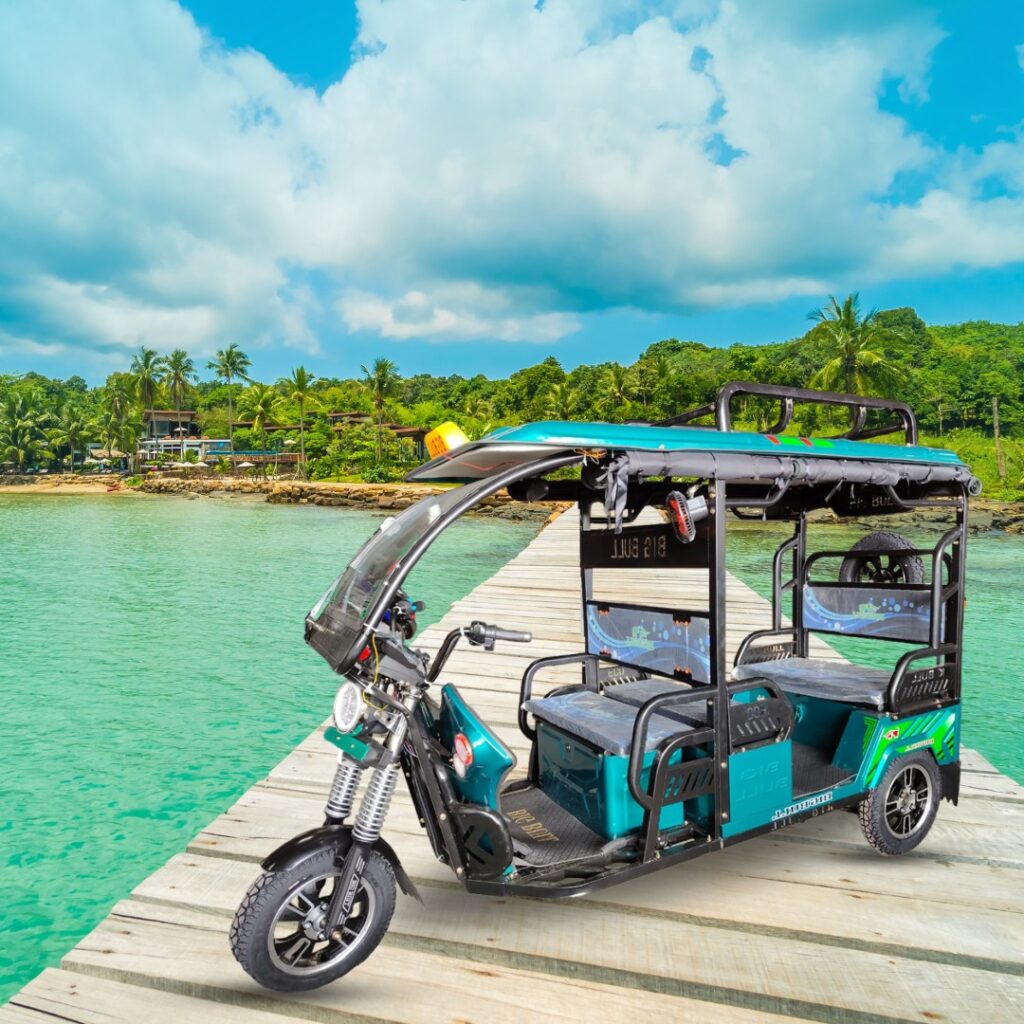
IMARC Group’s “E-Rickshaw Manufacturing Plant Project Report 2025: Industry Trends, Plant Setup, Machinery, Raw Materials, Investment Opportunities, Cost and Revenue” report provides a comprehensive guide on how to successfully set up a e-rickshaw manufacturing plant. The report offers clarifications on various aspects, such as unit operations, raw material requirements, utility supply, infrastructural needs, machinery models, labour necessities, transportation timelines, packaging costs, etc.
In addition to the operational aspects, the report also provides in-depth insights into e-rickshaw manufacturing plant cost, project economics, encompassing vital aspects such as capital investments, project funding, operating expenses, income and expenditure projections, fixed and variable costs, direct and indirect expenses, expected ROI, net present value (NPV), profit and loss account, and thorough financial analysis, among other crucial metrics. With this comprehensive roadmap, entrepreneurs and stakeholders can make informed decisions and venture into a successful e-rickshaw manufacturing unit.
Request a Sample Report: https://www.imarcgroup.com/e-rickshaw-manufacturing-plant-project-report/requestsample
What is E-Rickshaw?
An e-rickshaw, or electric rickshaw, is a battery-powered three-wheeled vehicle commonly used for short-distance public transportation in urban and semi-urban areas. Unlike traditional auto-rickshaws that run on petrol or diesel, e-rickshaws operate on electric motors powered by rechargeable batteries, typically lead-acid or lithium-ion. They are known by various names such as electric tuk-tuks, Totos, or e-tricycles. These vehicles are favored for their affordability, low maintenance costs, and eco-friendly operation, producing zero tailpipe emissions and minimal noise pollution. E-rickshaws have gained significant popularity in countries like India, Bangladesh, Nepal, and China, especially since their introduction around 2008. In India, they have become an integral part of last-mile connectivity solutions, providing an accessible mode of transport for daily commuters. The rise in e-rickshaw usage has also opened up new employment opportunities, particularly for individuals transitioning from manual cycle rickshaws. Their increasing adoption reflects a broader shift towards sustainable and cost-effective urban mobility solutions.
Market Trend and Drivers of E-Rickshaw:
The e-rickshaw market in India is experiencing rapid growth, driven by a combination of economic, environmental, and policy factors. Rising fuel prices have made electric rickshaws an attractive alternative due to their significantly lower operating costs—approximately ₹0.40 per kilometer compared to ₹2.10–₹2.30 for traditional auto-rickshaws. Government initiatives, such as the FAME (Faster Adoption and Manufacturing of Hybrid and Electric Vehicles) schemes, provide subsidies and incentives that reduce the upfront cost of e-rickshaws, making them more accessible to drivers and fleet operators. States like Uttar Pradesh and Delhi have implemented additional benefits, including tax exemptions and financial support, further encouraging adoption. The demand for affordable, eco-friendly last-mile transportation in densely populated urban areas has also propelled market growth.
Key Aspects to Setup a E-Rickshaw Plant:
- Location to Setup Plant
- Market Research
- Plant Layout
- Construction and Infrastructure
- Equipment/Machinery Procurement
- Documentation and Licenses
- Cost Analysis
Requirements to Setup a Facility:
- Funds
- Machinery
- Lands
Types of Costs to Setup a Factory:
- Land, Location and Site Development Cost
- Plant Layout Cost
- Machinery Requirements and Costs
- Raw Material Requirements and Costs
- Packaging Requirements and Costs
- Transportation Requirements and Costs
- Utility Requirements and Costs
- Human Resource Requirements and Costs
Project Economics:
- Capital Investments
- Operating Costs
- Expenditure Projections
- Revenue Projections
- Taxation and Depreciation
- Profit Projections
- Financial Analysis
Key Questions Answered in the Report:
- How has the e-rickshaw market performed so far and how will it perform in the coming years?
- What is the market segmentation of the global e-rickshaw market?
- What is the regional breakup of the global e-rickshaw market?
- What are the price trends of various feedstocks in the e-rickshaw industry?
- What is the structure of the e-rickshaw industry and who are the key players?
- What are the various unit operations involved in a e-rickshaw manufacturing plant?
- What is the total size of land required for setting up a e-rickshaw manufacturing plant?
- What is the layout of a e-rickshaw manufacturing plant?
- What are the machinery requirements for setting up a e-rickshaw manufacturing plant?
- What are the raw material requirements for setting up a e-rickshaw manufacturing plant?
- And more…
How IMARC Can Help?
IMARC Group is a global management consulting firm that helps the world’s most ambitious changemakers to create a lasting impact. The company provide a comprehensive suite of market entry and expansion services. IMARC offerings include thorough market assessment, feasibility studies, company incorporation assistance, factory setup support, regulatory approvals and licensing navigation, branding, marketing and sales strategies, competitive landscape and benchmarking analyses, pricing and cost research, and procurement research.
Services:
- Plant Setup
- Factoring Auditing
- Regulatory Approvals, and Licensing
- Company Incorporation
- Incubation Services
- Recruitment Services
- Marketing and Sales
Contact Us:
IMARC Group
134 N 4th St. Brooklyn, NY 11249, USA
Email: sales@imarcgroup.com
Tel No:(D) +91 120 433 0800
United States: +1-631-791-1145


